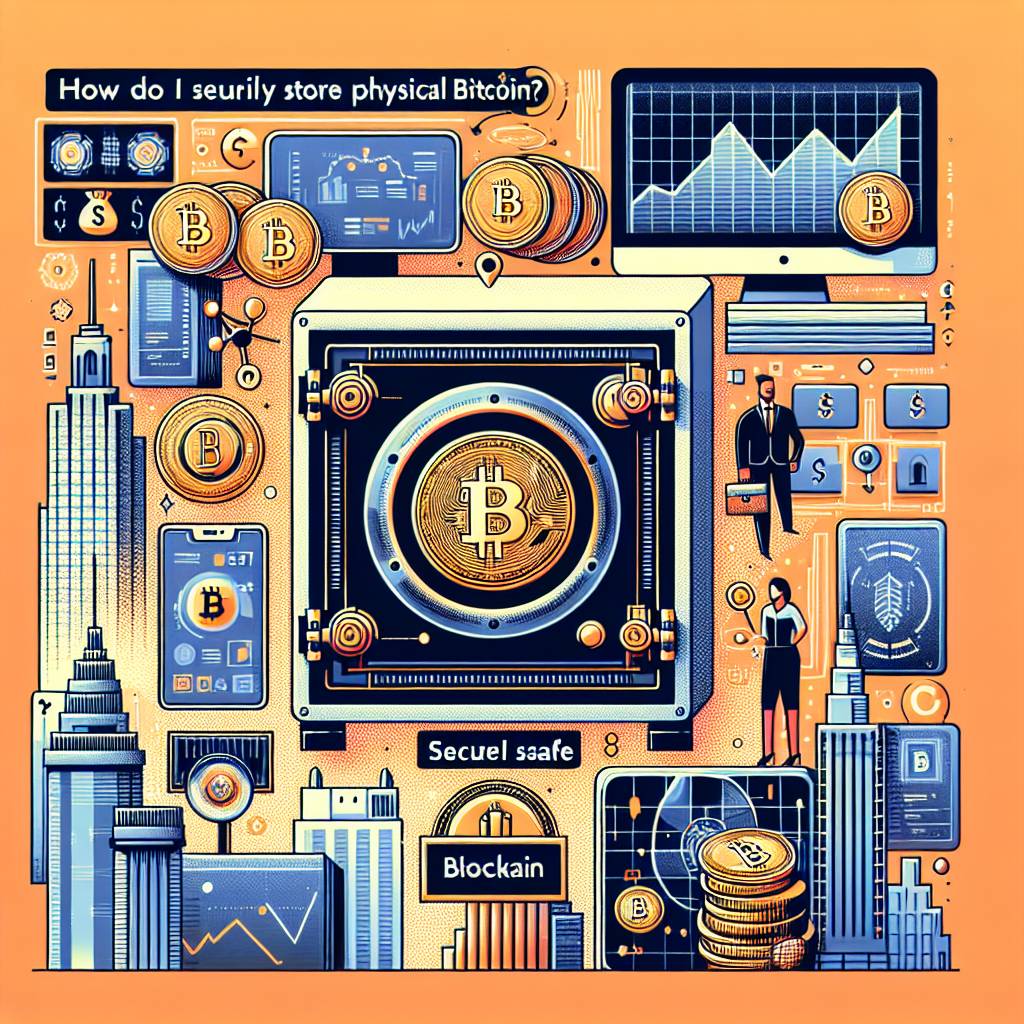How do I securely store and protect my digital assets in the crypto world?
As a crypto investor, I want to ensure the security of my digital assets. What are the best practices for securely storing and protecting my cryptocurrencies in the crypto world?

3 answers
- One of the most important steps to securely store and protect your digital assets in the crypto world is to use a hardware wallet. Hardware wallets are physical devices that store your private keys offline, making them less susceptible to hacking or malware attacks. Examples of popular hardware wallets include Ledger Nano S and Trezor. By keeping your private keys offline, you greatly reduce the risk of your assets being compromised. Another important practice is to enable two-factor authentication (2FA) on all your crypto exchange and wallet accounts. 2FA adds an extra layer of security by requiring you to provide a second form of authentication, such as a code generated by a mobile app, in addition to your password. This helps prevent unauthorized access to your accounts even if your password is compromised. Additionally, it's crucial to regularly update your software and firmware. Developers often release security patches and updates to address vulnerabilities, so keeping your software up to date helps protect your assets from potential threats. Remember to also be cautious of phishing attempts. Always double-check the URLs of websites you visit and be wary of unsolicited emails or messages asking for your personal information. It's best to directly type in the website URL or use bookmarks to access your crypto accounts. Lastly, consider using a dedicated email address for your crypto-related activities. This can help isolate potential phishing attempts and reduce the risk of your personal email being compromised. By following these best practices, you can significantly enhance the security of your digital assets in the crypto world.
 Dec 20, 2021 · 3 years ago
Dec 20, 2021 · 3 years ago - Hey there! When it comes to securely storing and protecting your digital assets in the crypto world, there are a few things you should keep in mind. First, make sure to choose a reputable and secure crypto wallet. Look for wallets that have a strong track record and positive user reviews. Additionally, consider using a wallet that allows you to control your own private keys, as this gives you full ownership and control over your assets. Another important aspect is to diversify your storage solutions. Instead of relying solely on one wallet or exchange, consider using multiple wallets and exchanges to spread out the risk. This way, even if one wallet or exchange is compromised, your other assets will still be safe. It's also a good idea to regularly backup your wallet and store the backup in a secure location. This ensures that even if your device is lost or damaged, you can still recover your assets. Lastly, educate yourself about common security threats and stay updated on the latest security practices. The crypto world is constantly evolving, and staying informed can help you stay one step ahead of potential threats. I hope these tips help you secure your digital assets in the crypto world! Good luck and happy investing!
 Dec 20, 2021 · 3 years ago
Dec 20, 2021 · 3 years ago - At BYDFi, we understand the importance of securely storing and protecting your digital assets in the crypto world. One of the best ways to achieve this is by using a combination of hardware wallets and secure offline storage solutions. Hardware wallets, such as Ledger Nano S and Trezor, provide an extra layer of security by keeping your private keys offline and away from potential online threats. In addition to hardware wallets, it's also recommended to use secure offline storage solutions, such as cold wallets or paper wallets. These wallets store your private keys offline, making them less vulnerable to hacking or malware attacks. However, it's important to note that offline storage solutions require careful handling and safekeeping to prevent physical theft or loss. Furthermore, enabling two-factor authentication (2FA) on all your crypto accounts is crucial for added security. This ensures that even if your password is compromised, an additional authentication step is required to access your accounts. Regularly updating your software and firmware is another important practice to protect your digital assets. Developers often release security patches and updates to address vulnerabilities, so staying up to date with the latest versions can help safeguard your assets. Lastly, it's essential to be cautious of phishing attempts and to only use trusted and verified platforms for your crypto transactions. Always double-check the URLs, enable browser extensions that warn against malicious websites, and be wary of unsolicited requests for personal information. By following these practices, you can enhance the security of your digital assets and have peace of mind in the crypto world.
 Dec 20, 2021 · 3 years ago
Dec 20, 2021 · 3 years ago
Related Tags
Hot Questions
- 69
What is the future of blockchain technology?
- 68
Are there any special tax rules for crypto investors?
- 60
How can I minimize my tax liability when dealing with cryptocurrencies?
- 51
How does cryptocurrency affect my tax return?
- 47
How can I buy Bitcoin with a credit card?
- 33
What are the best practices for reporting cryptocurrency on my taxes?
- 32
What are the best digital currencies to invest in right now?
- 31
How can I protect my digital assets from hackers?
